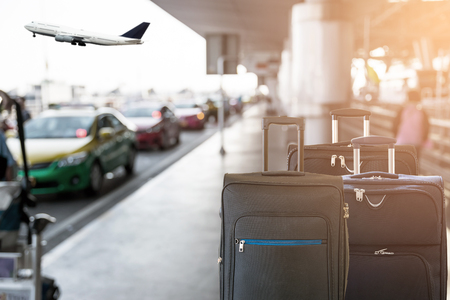Introduction to Lost Luggage Insurance in the UK
Lost luggage insurance is an essential aspect of travel protection for anyone heading abroad from the UK, whether for business or leisure. At its core, lost luggage cover is designed to offer financial compensation if your checked baggage goes missing, is delayed, or suffers damage while under the care of an airline or transport provider. Most policies typically reimburse you for the cost of replacing essential items and personal belongings up to a specified limit. However, the reality is that not all losses are covered equally and the devil truly lies in the detail—the so-called “small print”. For UK travellers, understanding the precise wording of their insurance policy has never been more crucial. This is due not only to variations in cover between different insurers but also because of distinct exclusions and limits that may apply under UK regulations and common travel routes. As travel disruptions remain unpredictable, knowing what’s included (and more importantly, what isn’t) can help prevent unwelcome surprises when making a claim.
2. Common Exclusions in Lost Luggage Policies
When it comes to lost luggage cover in the UK, understanding what is not included is just as important as knowing what is. British travellers often assume their travel insurance will cover any scenario involving missing bags, but the reality is shaped by a range of standard exclusions detailed in the small print. Here, we take a closer look at some of the most common exclusions and limitations that could affect your claim.
Unattended Baggage
One of the primary reasons claims are rejected is due to unattended baggage. In most policies, if your luggage was left unsupervised in a public place—even for a short period—your insurer may refuse to pay out. This covers situations such as leaving bags on a train seat while you pop to the loo or stepping away from your suitcase at an airport café. The interpretation of unattended can vary between insurers, so always check your policy wording carefully.
Specific Items Not Covered
Not everything packed in your suitcase is automatically protected. Travel insurance policies typically exclude certain types of items from cover, especially those considered easily lost or particularly valuable. Some common examples relevant to UK holidaymakers are outlined below:
| Item Category | Typical Exclusion |
|---|---|
| Cash & Traveller’s Cheques | Rarely covered under standard lost luggage sections |
| Mobile Phones & Gadgets | Often excluded or require separate gadget insurance |
| Jewellery & Watches | Subject to strict limits or not covered at all unless declared |
| Documents (Passports, Tickets) | Usually only covered under specific sections or with limited reimbursement |
| Sports Equipment | May need additional cover; usually excluded from standard luggage cover |
High-Value Item Limitations
If you are travelling with expensive items, be aware of single item and total claim limits. Insurers commonly cap payouts for individual valuables—sometimes as low as £250 per item—and set an overall maximum for all valuables combined. This means that even if you lose several costly items, you might only receive a fraction of their value back. It’s wise for UK travellers to review these limits and consider specialist cover if carrying high-end tech or luxury goods.
A Quick Look at Typical Limits in UK Policies
| Luggage Section Limit (per trip) | Single Item Limit | Total Valuables Limit |
|---|---|---|
| £1,500 – £2,000 | £200 – £400 | £400 – £750 |
Key Takeaway for British Holidaymakers
The fine print on lost luggage cover is nuanced and varies by provider. Before setting off on your travels, it pays to scrutinise exclusions and limits—especially if you plan to pack valuable items or rely on having certain belongings insured during your trip.

3. Understanding Coverage Limits and Caps
When navigating lost luggage cover in the UK, it’s essential to pay attention to the financial limits set out by insurers. Every policy has its own rules on how much you can claim, and these figures are rarely as generous as travellers might hope. UK insurers typically impose two key types of restrictions: single article limits and overall payout caps.
Single Article Limits refer to the maximum amount you can claim for any one item lost from your luggage. For example, if your expensive headphones are stolen but your policy’s single article limit is £250, that’s all you’ll receive—even if they cost double. This restriction encourages claimants to list high-value items separately or consider additional coverage.
Overall Payout Caps represent the total maximum amount an insurer will pay out for a lost luggage claim. Even if the sum of your losses exceeds this figure, you won’t receive more than the cap. Common caps range between £1,000 and £2,500, but this varies widely across providers. These caps are particularly relevant when several valuable items go missing at once.
It’s worth noting that insurers may also apply sub-limits for certain categories such as electronics, jewellery, or cash—each with their own restrictions beneath the general cap. Reading your policy’s small print is vital to understand exactly what is covered and to avoid unwelcome surprises should you need to make a claim while travelling in the UK or abroad.
4. The Role of Receipts and Proof of Ownership
One crucial yet often overlooked aspect of lost luggage claims with British insurers is the requirement for thorough documentation—primarily, receipts and proof of ownership. Insurers in the UK are typically stringent about evidence to support the value and existence of items claimed as lost. This is due to both regulatory standards and the need to minimise fraudulent claims. Understanding what constitutes acceptable proof can make or break a claim, so it’s worth delving into the specifics.
What Do Insurers Usually Ask For?
Most British travel insurance providers expect claimants to provide original purchase receipts or invoices for high-value items such as electronics, designer clothing, or jewellery. In some cases, bank statements showing the relevant transactions may be accepted if receipts are unavailable. For lower-value goods, insurers might accept photographs of you using or wearing the item, warranty cards, or even product packaging as supplementary evidence.
| Type of Item | Preferred Documentation | Alternative Documentation |
|---|---|---|
| Electronics (e.g., laptops, cameras) | Original receipts/invoices | Bank statement, warranty card, photos in use |
| Clothing & Footwear | Receipts/tags | Photos, bank statement, labels |
| Jewellery | Purchase certificate/receipt | Appraisal documents, photos, bank record |
| Toiletries & Miscellaneous Items | Receipts if possible | Photos, written list of contents |
The Impact of Missing Receipts
If you cannot provide suitable documentation, most UK insurers reserve the right to reduce your payout significantly—or reject your claim altogether. Policies almost always include a clause stating that failure to prove ownership or value may result in a lower settlement or denial. The rationale is clear: without evidence, insurers cannot verify your loss or prevent fraudulent activity.
Troubleshooting Common Issues
If you have lost receipts, it’s advisable to gather any supporting materials quickly—such as photos on social media showing you with the item or emails confirming online purchases. Some insurers offer discretion on minor claims but tend to hold firm on valuable property. Always check your policy wording carefully and contact your insurer promptly if you’re struggling to collate proof.
Key Takeaway for UK Travellers
British insurance culture places a premium on documentation. Keeping digital copies of receipts or photographing new purchases before travelling can save significant hassle later. Ultimately, being prepared—and understanding how receipts and proof are scrutinised—will increase your chances of a successful claim if your luggage goes missing.
5. What to Do if Your Luggage is Lost: Steps for UK Travellers
Losing your luggage is a stressful experience, but taking the right steps quickly can make all the difference when it comes to making a successful insurance claim in the UK. Here’s a practical guide on what you should do, with an emphasis on aligning your actions with the requirements set out in most UK travel insurance policies.
Immediate Actions at the Airport or Station
First, report the loss to the relevant carrier—be it an airline, train company, or coach operator—as soon as you notice your luggage is missing. Insist on receiving a written Property Irregularity Report (PIR) or similar documentation; this will serve as vital evidence for your insurance claim. Keep any receipts or tickets related to your journey and baggage handling, as insurers may request these during assessment.
Notification Deadlines You Must Meet
Time is of the essence. Most UK insurers require that you notify them within a strict timeframe—often 24 to 48 hours after the incident. Delaying beyond this window can risk invalidating your claim. Contact your insurer’s claims helpline or use their online portal as soon as possible and record your case reference number for future correspondence.
Engaging Effectively with UK-Based Insurers
When engaging with your insurer, be clear and concise in describing the circumstances of the loss. Provide all supporting documentation, including the PIR, proof of ownership of lost items (such as purchase receipts), and evidence of any essential purchases made due to the loss (like toiletries or replacement clothing). If you’re unsure about any paperwork, ask specifically what’s required—UK insurers often publish detailed checklists on their websites.
Maximising Your Chances of a Successful Claim
Carefully review your policy’s small print regarding exclusions and limits before submitting your claim. For example, some policies exclude certain valuables or limit payouts per item. Highlight how you complied with all policy conditions—such as not leaving bags unattended—and keep copies of all correspondence. Persist politely if you feel your claim is being unfairly assessed; you have recourse through complaints procedures and ultimately the Financial Ombudsman Service if necessary.
By acting promptly and methodically, adhering to deadlines, and communicating clearly with UK-based insurers, you significantly improve your chances of recovering your losses under even the strictest small print conditions.
6. Tips for Avoiding Pitfalls in Lost Luggage Cover
Read the Small Print Thoroughly
When it comes to lost luggage insurance, it’s vital to scrutinise the policy wording with a fine-tooth comb. Many UK travellers overlook exclusions and limits tucked away in the small print. Pay particular attention to sections labelled “Exclusions” or “Limits of Liability,” as these define what is not covered and the maximum payout you can expect. Don’t hesitate to ask your insurer for clarification on ambiguous terms before you buy.
Understand Common Exclusions
Typical exclusions often include valuables like electronics, jewellery, and cash, especially if they are placed in checked baggage rather than carried on your person. Some policies may also exclude cover for items lost due to unattended bags or theft from vehicles not properly secured. Familiarise yourself with these clauses so you can take preventive action, such as carrying high-value items in your hand luggage or using additional locks.
Assess Your Travel Habits
British travel patterns—such as frequent European city breaks, long-haul holidays, and domestic rail journeys—affect the type of cover you’ll need. If you tend to travel with expensive gadgets or sports equipment, look for policies that allow you to specify and insure these items separately. Conversely, if most of your trips are low-risk or local, you might prefer a more basic policy with lower premiums but sufficient core cover.
Minimise Your Risk
Avoiding baggage mishaps starts with practical steps: label all luggage clearly with your contact details, use robust suitcases with secure locks, and keep receipts for valuable items. Consider photographing your packed items before travelling—this can help substantiate claims should things go awry. Additionally, always report lost luggage immediately at the airport and retain all paperwork provided by the airline.
Compare Policies Before You Buy
The UK insurance market is competitive, so take advantage by comparing several providers. Use comparison websites but also check direct offers from major brands—sometimes they provide extra benefits tailored to British travellers, such as quick claims processes or dedicated helplines. Look beyond price; weigh up excess amounts (the part you pay if you claim), claim procedures, and customer reviews for genuine feedback on service quality.
Keep Documentation Organised
If you do need to make a claim, having all relevant documentation ready—boarding passes, proof of purchase for lost items, police reports if applicable—will streamline the process. Many UK insurers now accept digital copies via email or app uploads, making it easier to submit evidence promptly while still abroad.
By following these practical strategies when reviewing policies and packing for your next trip, you’ll be well-placed to avoid common pitfalls in lost luggage cover and travel with greater peace of mind.


